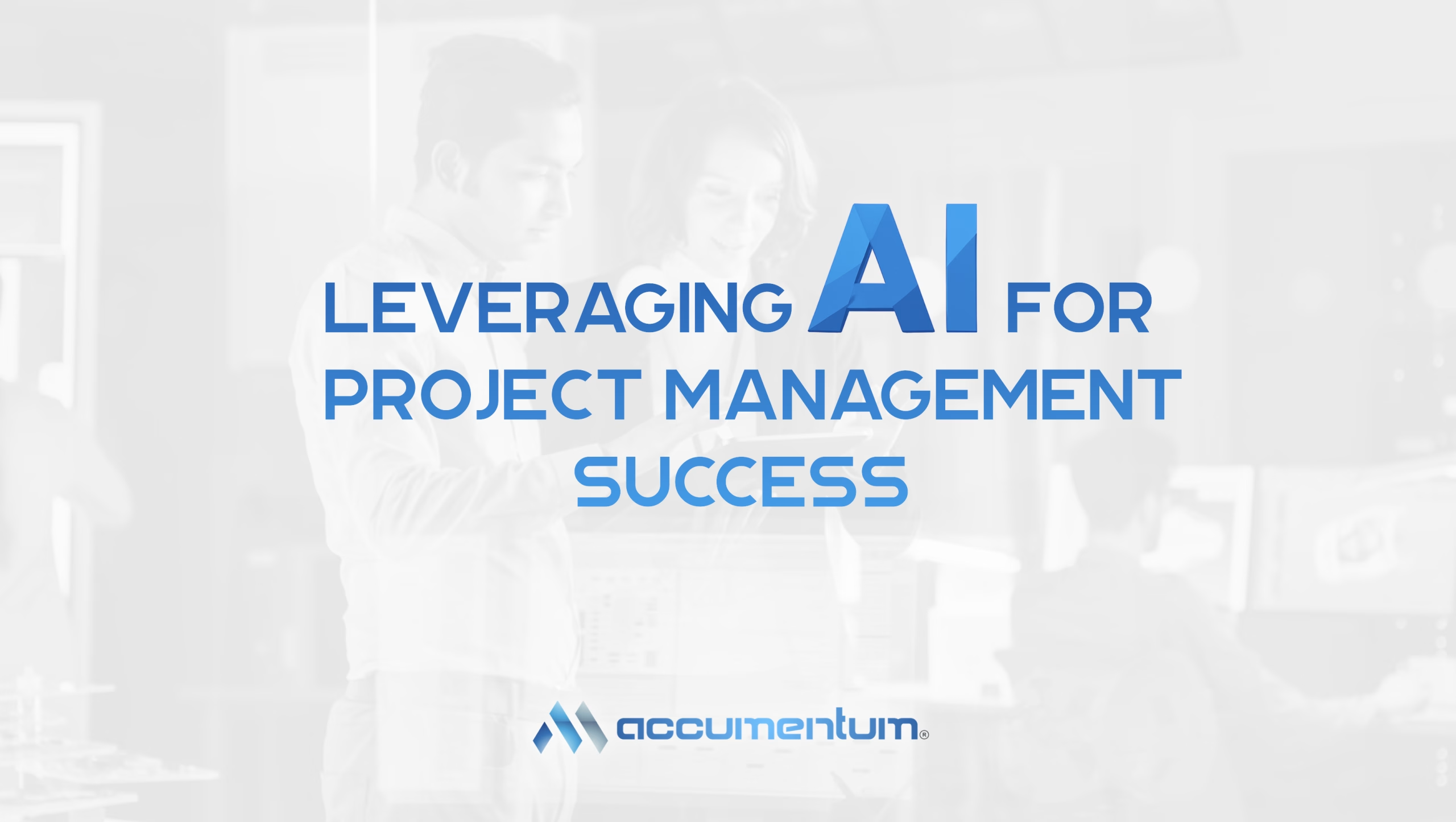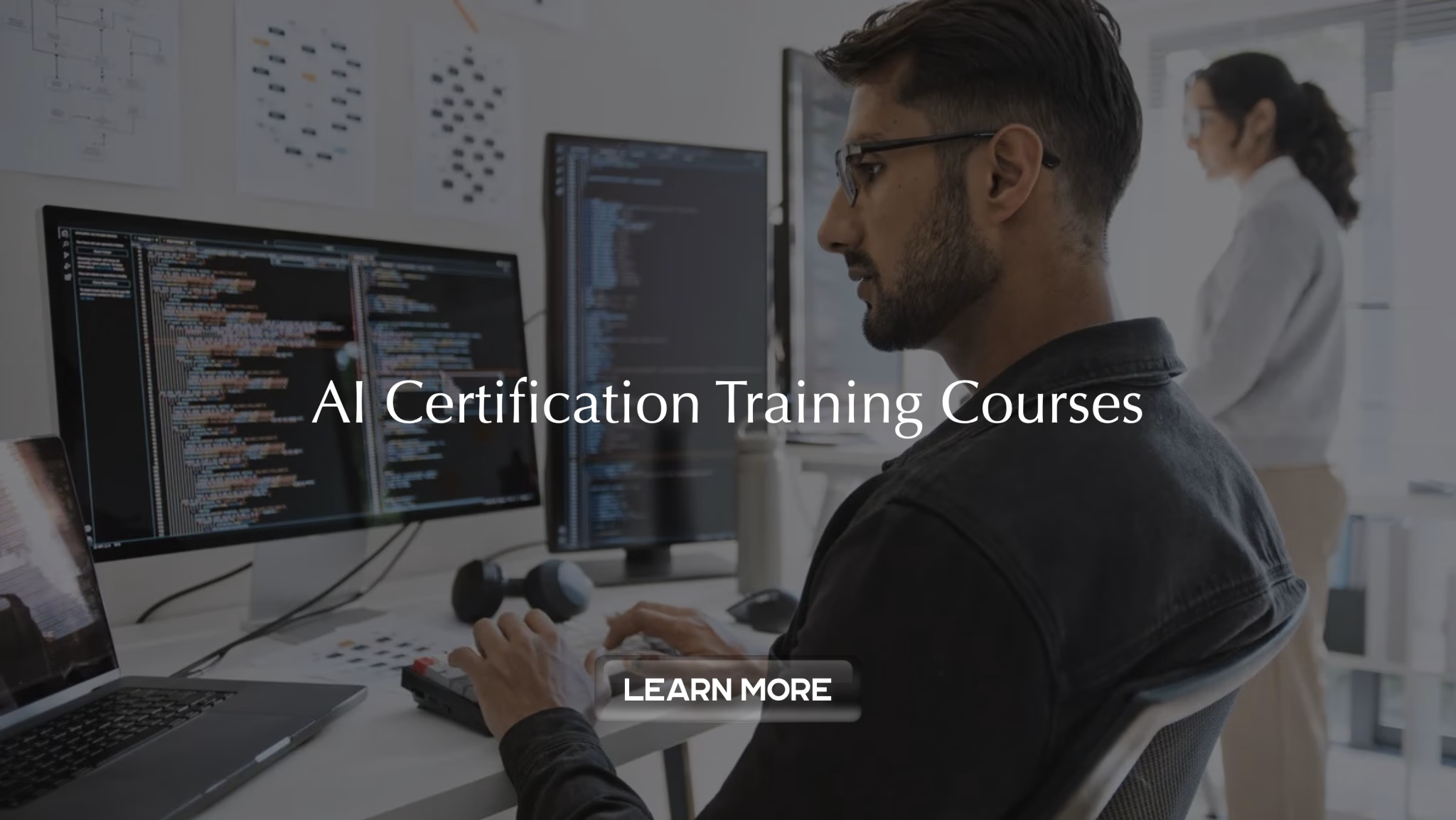
Artificial intelligence is transforming the types of initiatives companies undertake and the competencies project managers must possess to execute them effectively. Discover the critical skills — such as proficiency in data analysis, agile delivery methods, and ethical AI implementation — that will empower you to thrive in managing AI-driven projects. These skills enable project managers to navigate the complexities of AI technologies, ensuring alignment with organizational goals. Moreover, mastering these abilities fosters innovation and builds stakeholder trust in AI outcomes.

Across various sectors, artificial intelligence is emerging as a pivotal force for innovation. From smart automation to client-focused solutions, AI-driven projects are redefining the scope of organizational endeavors and the competencies required for project managers to execute them effectively. As these initiatives grow in prevalence and intricacy, the need for project managers well-versed in AI is surging rapidly. This demand underscores the importance of cultivating specialized skills to meet the challenges of AI project leadership.
Leading AI projects relies on foundational project management strengths — such as technical knowledge, strategic foresight, and flexibility — while also requiring proficiency in data handling, AI principles, and agile delivery frameworks designed for swift adaptation. These capabilities ensure project managers can manage the dynamic nature of AI technologies and align outcomes with business objectives.
This article highlights the key skills AI project managers need to excel, focusing on critical competencies for thriving in AI leadership roles. Whether you’re currently overseeing AI initiatives or aiming to transition into this space, mastering these skills is vital for driving success and fostering innovation in an AI-powered landscape.

To fully grasp the skills required, it’s essential to recognize what sets AI projects apart from others. These unique attributes highlight why even seasoned project managers may face novel obstacles and underscore the need to leverage core project management strengths while cultivating specialized skills tailored to AI. Understanding these distinctions is critical for navigating the complexities of AI-driven initiatives effectively.
Data-driven Core: Unlike conventional software projects that rely on fixed code or rules, AI projects hinge on data as their foundation. Effective data management—ensuring quality, accessibility, and security—is paramount to achieving successful outcomes.
Context-dependent Performance: AI outputs can vary significantly based on inputs or environments, such as a model excelling in one market but underperforming in another, necessitating careful calibration.
Vulnerability to Data Shifts: Even minor changes in data quality, volume, or type can lead to unpredictable AI behavior, making constant monitoring and adjustment critical.
Emphasis on Trust: AI systems can have unintended societal impacts, so fostering trustworthy AI involves embedding ethical, transparent, responsible, and explainable practices throughout the project lifecycle.
Ambiguous or Evolving Objectives: Many AI projects start with exploratory goals, requiring project managers to steer teams toward outcomes that may only become clear as the project progresses.
Continuous Iteration: AI systems demand ongoing retraining, testing, and refinement, often lacking a definitive completion point. Project managers must guide teams through adaptive processes that evolve with new insights.
Data-driven Core: Unlike conventional software projects that rely on fixed code or rules, AI projects hinge on data as their foundation. Effective data management—ensuring quality, accessibility, and security—is paramount to achieving successful outcomes.
Context-dependent Performance: AI outputs can vary significantly based on inputs or environments, such as a model excelling in one market but underperforming in another, necessitating careful calibration.
Vulnerability to Data Shifts: Even minor changes in data quality, volume, or type can lead to unpredictable AI behavior, making constant monitoring and adjustment critical.
Emphasis on Trust: AI systems can have unintended societal impacts, so fostering trustworthy AI involves embedding ethical, transparent, responsible, and explainable practices throughout the project lifecycle.
Ambiguous or Evolving Objectives: Many AI projects start with exploratory goals, requiring project managers to steer teams toward outcomes that may only become clear as the project progresses.
Continuous Iteration: AI systems demand ongoing retraining, testing, and refinement, often lacking a definitive completion point. Project managers must guide teams through adaptive processes that evolve with new insights.
These traits amplify the need for project managers to develop targeted competencies that address the dynamic and multifaceted nature of AI initiatives. By honing these skills, managers can better anticipate challenges, align projects with strategic goals, and build stakeholder confidence in AI solutions.

To excel in AI project management, professionals must cultivate a blend of technical insight, effective communication, and ethical judgment. These seven vital skills will equip you to navigate the complexities of dynamic AI initiatives with confidence and precision. By mastering these competencies, you’ll position yourself as a leader capable of driving impactful AI outcomes.
Tool Proficiency and Practical Project Management
AI projects thrive when supported by tools that streamline workflows and track progress. Key aspects include:
Agile and Iterative Delivery for AI Initiatives
Most AI projects demand flexibility through short development cycles, frequent testing, and ongoing refinement. Project managers should excel at:
Communication Across Diverse Teams
AI projects involve cross-functional teams—data scientists, engineers, business leaders, and legal experts—with distinct perspectives. Project managers must:
Trustworthy AI Implementation
Ethical considerations are integral to AI projects, and project managers must ensure trust is prioritized by:
Data Literacy and Insight
AI project managers don’t need to be data experts but must understand data fundamentals to lead effectively. This involves:
Understanding AI Technologies and Development Lifecycle
While not required to develop models, AI project managers need a working knowledge of the AI lifecycle, including:
While not required to develop models, AI project managers need a working knowledge of the AI lifecycle, including:
- Data preparation and collection processes.
- Model training, evaluation, and deployment stages.
- Problem framing and ongoing monitoring.
The CPMAI™ methodology offers a robust framework for mastering this lifecycle. This understanding helps managers anticipate challenges and align resources effectively.
Tool Proficiency and Practical Project Management
AI projects thrive when supported by tools that streamline workflows and track progress. Key aspects include:
- Familiarity with version control and pipeline management systems.
- Proficiency in project management platforms tailored for data-driven workflows.
- Efficient documentation and tracking to keep pace with rapid changes.
This skill ensures seamless collaboration and maintains project momentum in fast-evolving AI environments.
Agile and Iterative Delivery for AI Initiatives
Most AI projects demand flexibility through short development cycles, frequent testing, and ongoing refinement. Project managers should excel at:
- Prioritizing iterative phases based on emerging insights.
- Balancing experimentation with business deadlines.
- Managing fluid project scopes effectively.
Agility enables teams to adapt swiftly to new findings, optimizing project outcomes.
Communication Across Diverse Teams
AI projects involve cross-functional teams—data scientists, engineers, business leaders, and legal experts—with distinct perspectives. Project managers must:
- Align contributors from varied disciplines toward shared goals.
- Translate technical concepts for business stakeholders.
- Set clear, realistic expectations across all parties.
Strong communication fosters collaboration and ensures project coherence across specialties.
Critical Thinking and Adaptive Problem Solving
AI projects unfold in dynamic settings, requiring project managers to think on their feet and address challenges as they arise. This includes:
AI projects unfold in dynamic settings, requiring project managers to think on their feet and address challenges as they arise. This includes:
- Swiftly pivoting when data uncovers new directions.
- Evaluating model performance changes decisively.
- Analyzing results to guide evolving strategies.
This skill empowers managers to steer projects through uncertainty with clarity.
Trustworthy AI Implementation
Ethical considerations are integral to AI projects, and project managers must ensure trust is prioritized by:
- Embedding ethical review checkpoints throughout the project.
- Identifying risks like bias or opacity early on.
- Promoting discussions on fairness and accountability.
Building trust is a cornerstone of responsible AI, safeguarding stakeholder confidence.
Data Literacy and Insight
AI project managers don’t need to be data experts but must understand data fundamentals to lead effectively. This involves:
- Grasping data sourcing, cleaning, and labeling processes.
- Collaborating closely with data scientists and engineers.
- Recognizing data quality issues and potential biases.
Data literacy enables informed decision-making and risk mitigation.
AI projects disrupt traditional management approaches, yet they present a dynamic opportunity for project professionals to broaden their skill set. By honing competencies like agile delivery, ethical leadership, and data fluency, you’ll be well-equipped to lead teams through the unique challenges of AI initiatives, delivering outcomes that are ethical, impactful, and aligned with organizational objectives. These skills not only enhance project success but also position you as a forward-thinking leader in the AI-driven future.
Accumentum® is the leading training provider for a vast array of technology vendors including AWS, Cisco, CompTIA, EC-Council, Fortinet, HRCI, ITIL, Microsoft, Palo Alto, PMI, Salesforce, Scrum, ServiceNow, SHRM, Veritas, VMWare, and more.





